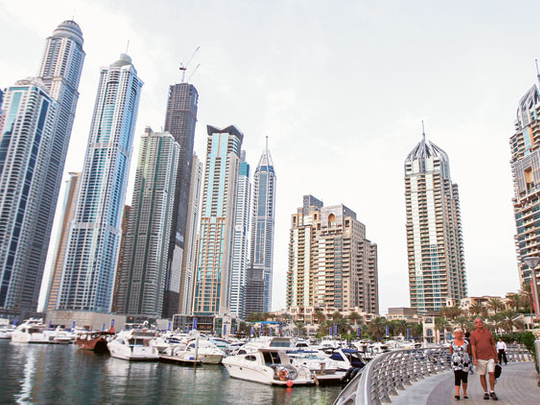
Dubai: Forget diamonds, gold-plated smartphones or limited-edition watches.
The wealthy residents of the UAE are splurging billions of dirhams on other finer things in life that they don’t necessarily have to wear to flaunt their fortune.
According to the expenditure data released by Euromonitor International, the country’s affluent are spending most of their disposable income on ultra-posh hotels and luxury cars, besides designer clothes and shoes.
Read more: The rich kids of Dubai
This year alone, those who have the extra moola are expected to rack up $1.5 billion (Dh5.5 billion) in bills for staycations at five-star plus hotels across the UAE, and another $2.9 billion on super expensive rides.
These are the two of the most popular categories that the affluent residents in the UAE are spending most of their money on.
Judging by the spending numbers, there is far more money going into car showrooms and hotel properties than jewellery, watch and electronic shops in the UAE.
Where the money of the UAE's rich goes ($US)
1.Luxury cars: 2.869 billion
2.Designer apparel and footwear (ready-to-wear): 1.627 billion
3.Luxury hotels (5-star plus): 1.503 billion
4.Luxury jewellery: 618 million
5.Luxury timepieces: 553 million
6.Luxury leather goods: 312 million
7.Super premium beauty and personal care: 274.2 million
8.Luxury eyewear: 137.3 million
9.Fine beverages and spirits: 124.2 million
10.Luxury writing instruments and stationery: 15 million
Euromonitor’s data, however, did not take into account the expenditures on housing and vacations abroad.
Read more: Meet the 5 richest people in UAE
Spending on luxury goods by UAE residents, expected to reach $8.044 billion by the end of the year, is outstripping the purchases made by tourists, estimated to be around $3.594 billion.
However, with the economic slowdown, households in the country are kind of putting a lid on spending, with the total domestic expenditures on luxury goods this year expected to be slightly down compared to a year ago.
According to Euromonitor, domestic luxury goods spending is set to decline by -0.5 per cent this year compared to last year, as consumer sentiment has been impacted by weaker economic performance.
“Consumers are reluctant to buy luxury goods,” a spokesperson told Gulf News.
But this will be compensated by a slight uptick in spending among visitors, bringing the overall domestic and international luxury spending numbers to $11.639 billion, up from $11.628 billion in 2016.







